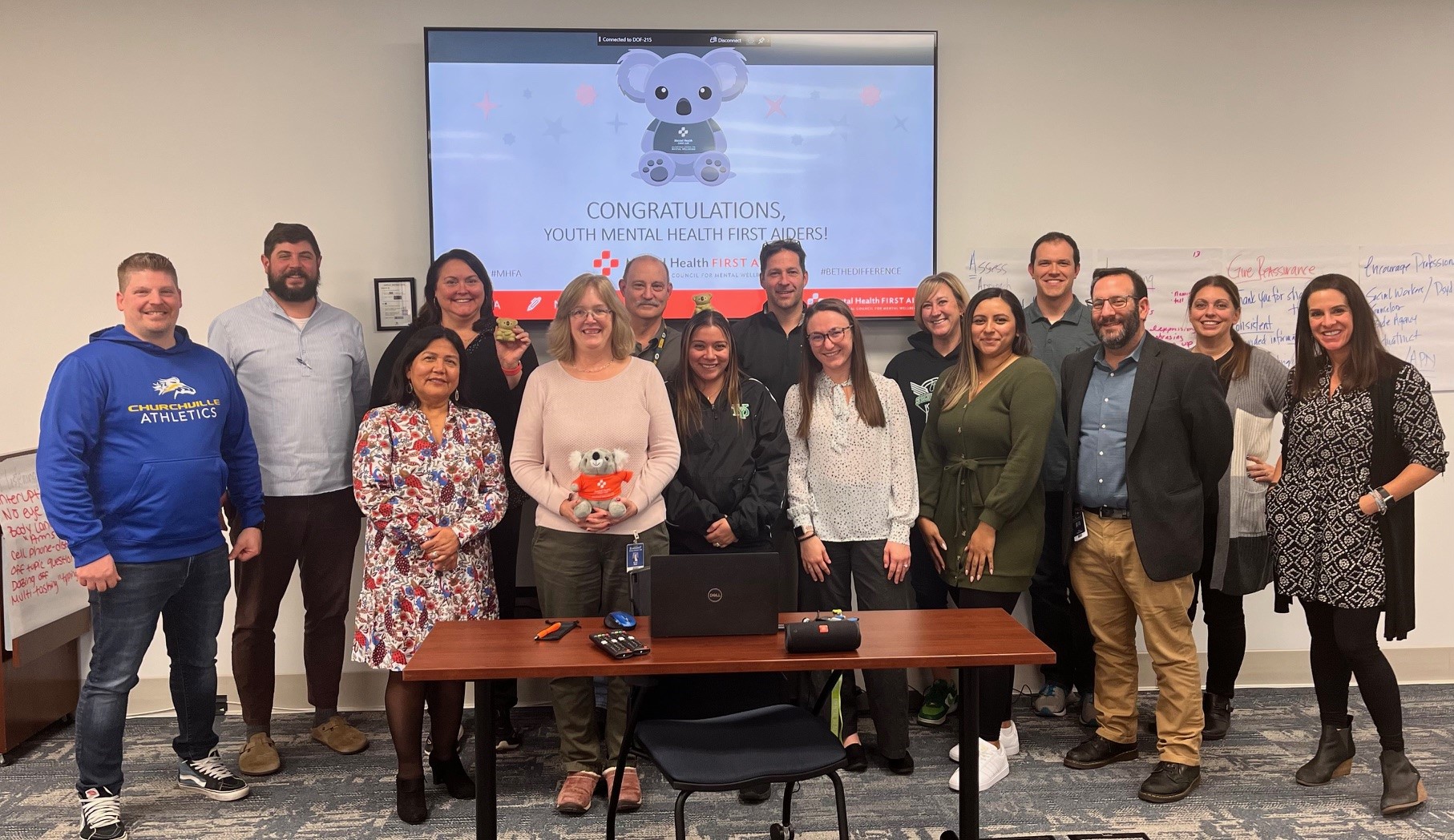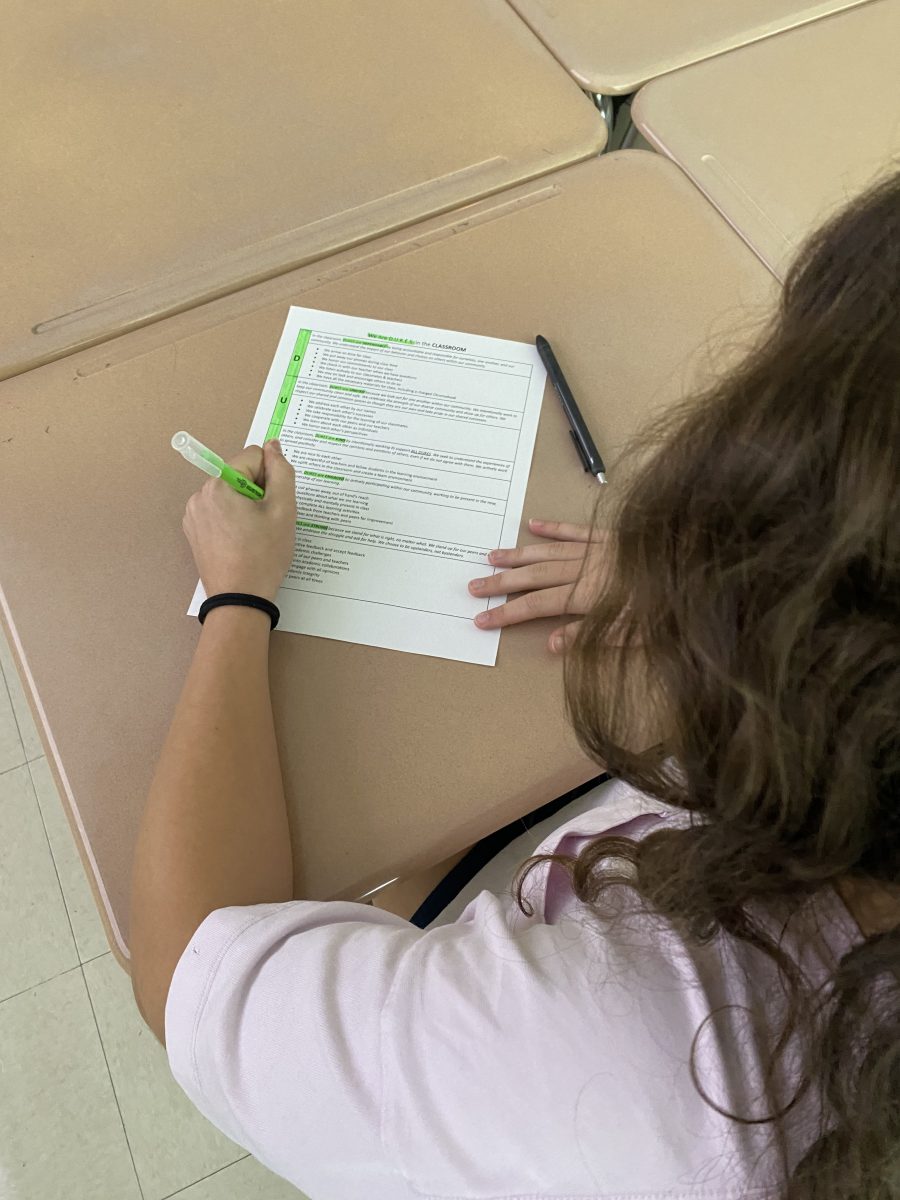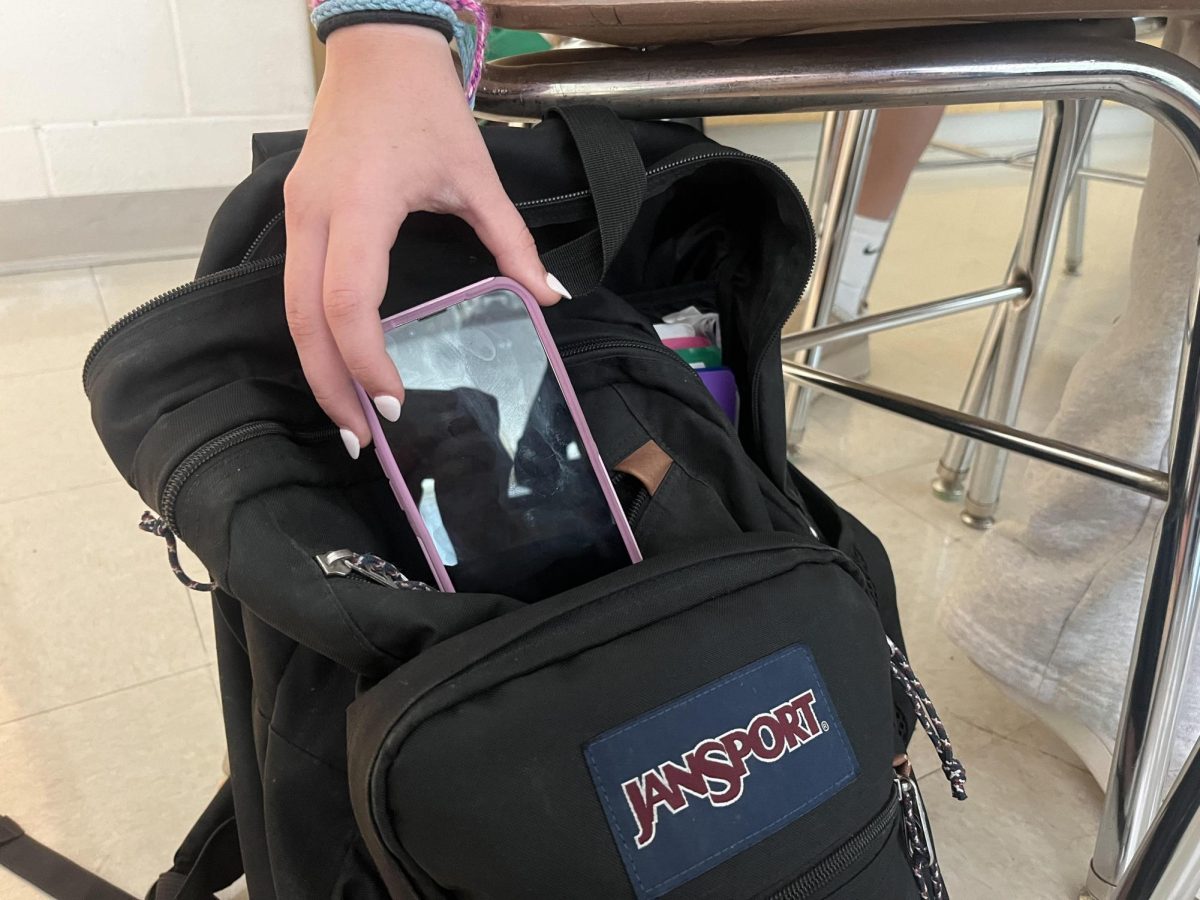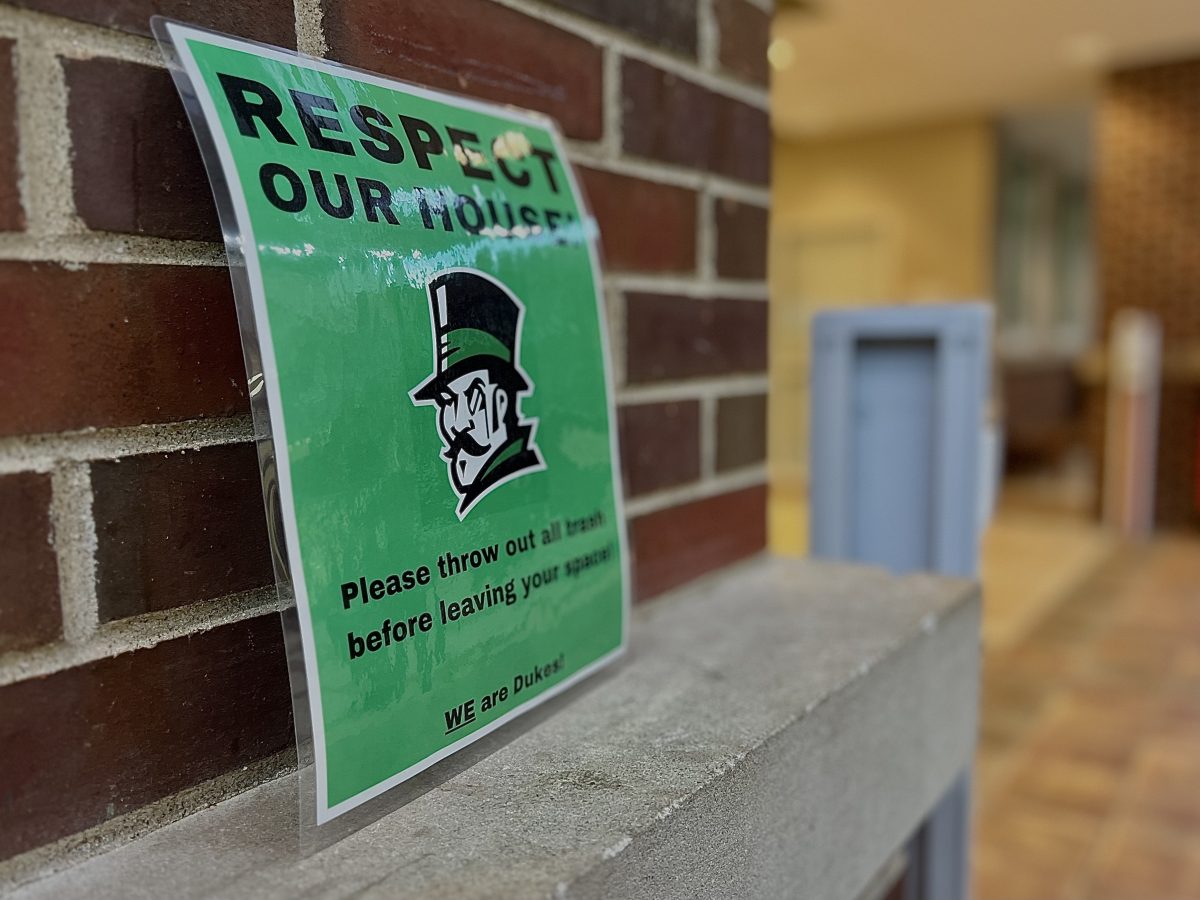With 25 social workers, 21 counselors, and 19 psychologists and various student support groups, Elmhurst Community Unit School District 205 has more mental health resources than ever before. On Oct. 26, a new mental health program was announced in a district press release. In contrast to previous mental health initiatives in the district, this program goes beyond in-school resources.
The grant of $249,000 dollars will go towards the newly instated Elmhurst Community Advocacy, Resilience, Engagement and Supports (CARES) program. These five key components are reflected in the mission of the program, to provide referral services and outside mental health services for low income students in the community. In addition to connecting families to mental health care providers that correspond with their financial and emotional needs, the grant will pay for the first eight sessions of this outside counseling.
“If you are a student who may be experiencing mental health issues, want to connect with a provider, but you need additional assistance, you would be able to connect through the program Referral GPS,” Kevin Rubenstein, assistant superintendent for student services, said.
Referral GPS is a web-based service that uses insurance data and individual health care needs to connect families to mental health care providers in their community. Through this application, mental health professionals within the district will be able to identify individuals as students in District 205, and offer financial assistance accordingly.
“There is a whole group of students that, because of their financial status, barriers within their family or because of stigma related to mental health, have never had access to a mental health provider,” Rubenstein said. “Through this grant and this program, we will be able to provide [students] with services that are so important on a day-to-day basis.”
With 16% of students in the district coming from low income families, according to the 2023 Illinois School Report Card, lack of financial resources poses a threat to more than 1,000 students in the community. These students were brought into great consideration when deciding who this grant serves.
“We are going to start out by targeting students from low income backgrounds,” Rubenstein said. “We know that students from low income backgrounds have the most barriers when receiving mental health services.”
Being able to access mental health services can be expensive. By covering the cost of eight counseling meetings, this grant will save financially underprivileged students and families hundreds of dollars.
“I’m excited that [Referral GPS] can be something that District 205 families can utilize,” Deirdre Devlin, social worker at York Community High School, said. “We don’t want barriers for people trying to receive mental health support, and [Referral GPS] is an online system that will look at insurance and find an appropriate fit. If there are more specific supports that you are looking for, it will identify local providers. It does a lot of the work for families in a more efficient way.”
This grant will help break down the financial barriers that prevent students from trying to obtain mental health services. However, it will also offer alternative support for students who wish to seek mental health resources beyond in-school programs.
“I know from my position in the district that the number of students who need additional support relating to mental health is significant,” Rubenstein said. “The district isn’t always able to provide all the services for every single student on a day-to-day business. We have a lot of resources, but there are also a lot of resources in our community. We need to link the two together.”
York has an abundance of mental health support opportunities available to all students. For example, York offers groups for those with anxiety or who want to improve their executive functioning skills. Additionally, students are able to meet with their counselors and social workers regularly. However, school isn’t always the place where students want to address mental health.
“Some students are really open to receiving mental health support throughout the school day,” Devlin said. “[However] we have found that for some students, the school setting doesn’t feel like the right environment for them to be able to tap into those supports.”
With the abundance of students in need of mental health support, along with so many students not feeling comfortable in receiving that help at school, the district has begun putting a lot of resources towards the referral process.
“Your social workers and school counselors are going to have some additional resources at their fingertips,” Rubenstein said. “While it’s not through this grant, all of our school social workers and school counselors are being trained in mental health first aid, which is a brand new program this year.”
Throughout the months of November and December, student services faculty have attended in-person sessions that equip them with the skills and resources to properly approach mental health emergencies. The national program works to teach school faculty how to better respond to signs of mental illness or substance abuse. York intends to use this program to gain more insight on the referral process.
“Even though some of us have been [working in student services for a while], I appreciate that the district wants to keep us fresh,” Devlin said. “Trends change with what students might be experiencing. It’s always good to have those refreshers. It’s a nice opportunity when we receive that outside training to collaborate with outside districts.”
The student services team is working hard to provide programs that cater to the ever changing needs of students. One of the ways that they do this is by forming strong student-faculty relationships.
“We have a significant focus on making sure that our students have the support in school, to feel safe and secure from a physical and emotional standpoint,” Rubenstein said. “Our teaching staff connect with our students on a day-to-day basis to create a culture of belonging.”
Teachers play an important role in creating an encouraging and healthy environment for students as well. By interacting with students five days a week, teachers influence students in many different ways.
“I share my struggles with my classes so that students can see it’s okay to struggle,” Alisha Bhimji, math teacher, said. “We should be talking about [mental health] more often. Teachers recognize their students and watch out for those who are struggling.”
Bhimji is a strong mental health advocate at the school. As someone who is vocal about her mental health struggles, she works hard to create an environment where students can openly talk about their struggles. Seeing students on a daily basis puts teachers in a position to check in with students and refer them to counselors if necessary.
“I think we should be checking in with students, asking them to reflect on how they are,” Bhimji said. “Anything that can help students get in touch with their feelings, and recognize what they are feeling, is a good thing.”
By working with students and counselors directly, teachers act as a bridge between the two, and offer valuable reference points when determining what supports students may need. The different levels of support within the school will all play an important role in making mental health resources available to all.
“Our superintendent is responsible for demonstrating just how much our students mean to us on a day to day basis, and that flows right to our classroom level,” Rubenstein said. “Our teachers are trying so hard to connect to every single student on a day to day basis, and our students are working really hard to connect to our teachers. This [grant program] is just going to make all of that much easier, so everyone is able to work together at different levels”








